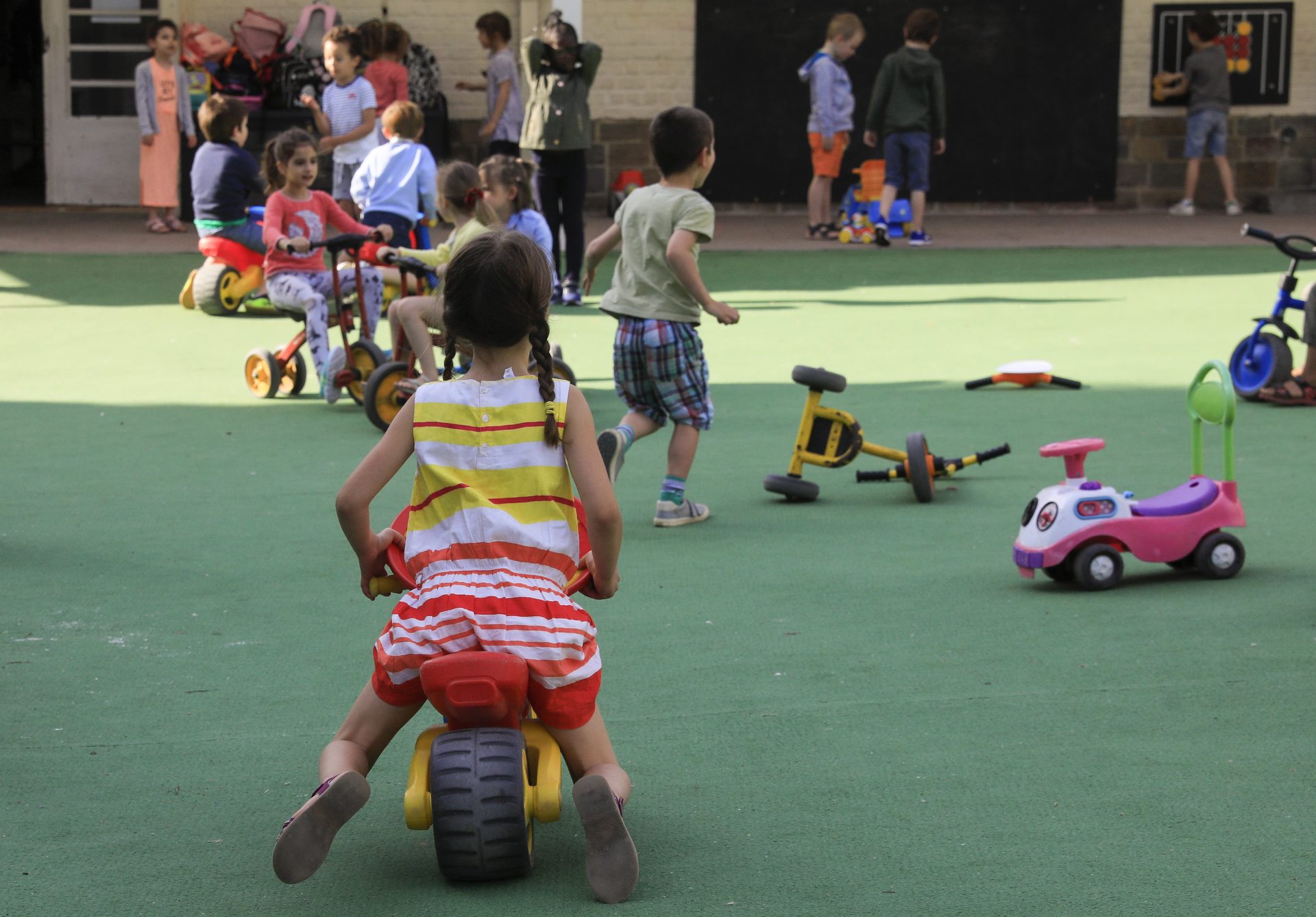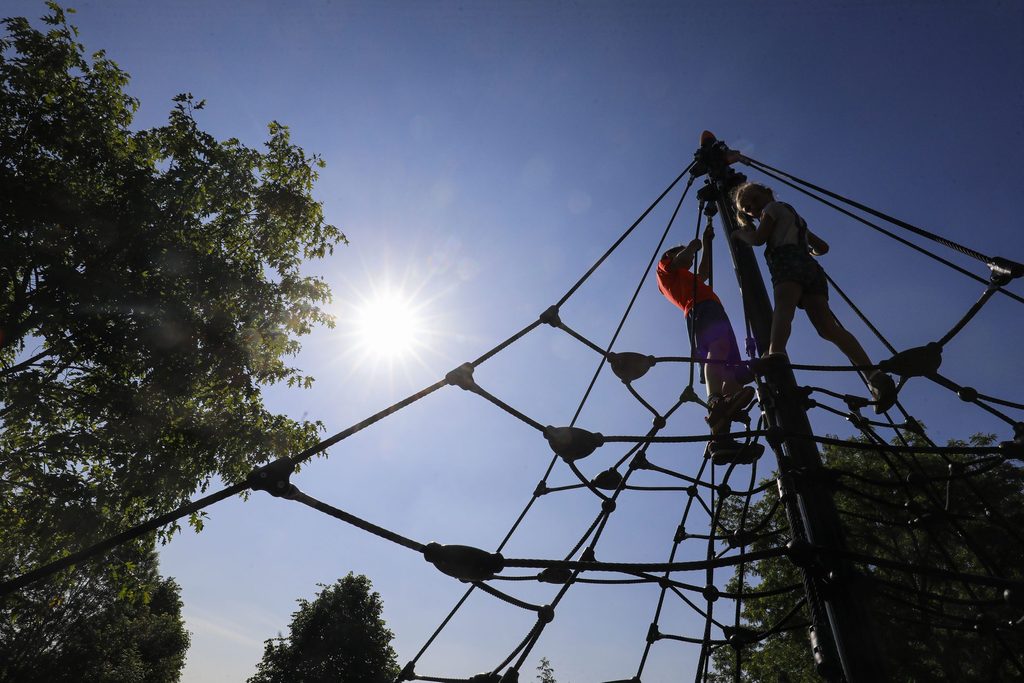In recent years, efforts have been made to better distribute Brussels playgrounds, especially in poorer neighbourhoods, but a new analysis has shown almost half are not green enough.
Several years ago, a study for Brussels Environment highlighted that the distribution of parks to this end was not ideal, finding many gaps in neighbourhoods of the city where they were most needed. The agency has since worked to prioritise neighbourhoods with little play infrastructure when creating new parks.
It also aimed to diversify the types of playgrounds by combining adventure and sport infrastructure with nature, and to incorporate play elements into the landscape (especially in green spaces).
No trees, no children
The number of playgrounds has increased in the Brussels-Capital Region to 349, fulfilling an important social function, especially for the many Brussels residents who do not have a balcony or garden. Yet, data from Brussels Environment and data on the distribution of tall vegetation showed that more than half (182) are still lacking trees in their immediate surroundings.
"A playground without trees is a playground without children on hot days," Green party MP Lotte Stoops said. She noted that planting trees provides shade, protects play areas against flooding and is the cheapest form of protection against heatwaves. "Municipal and regional playgrounds must be turned into play parks as soon as possible."
Stoops called on Environment Minister Alain Maron to work on making Brussels' playgrounds greener and also add more water elements, which are useful in the event of flooding.

Brussels launched an initiative two years ago to make school playgrounds greener. Credit: Belga / Thierry Roge
In his response, Maron noted that it is a priority for Brussels Environment to ensure that all the people of Brussels have access to a green space close to their home. "To do this, we are focusing both on preserving existing green spaces, but also on actions to add vegetation to public space," a statement shared with The Brussels Times read.
He noted that, in this context, the Re-Création project was launched in the region two years ago, enabling schools to redesign their playgrounds by making them greener. A total of 20 schools, mainly in densely populated areas, were selected to receive this support and the design phase for the play areas was completed in 2022.
But Stoops told Sudinfo that there are still many playgrounds in the public space of Brussels that look "too much like a concrete plain and offer little in the way of nature or shade."

